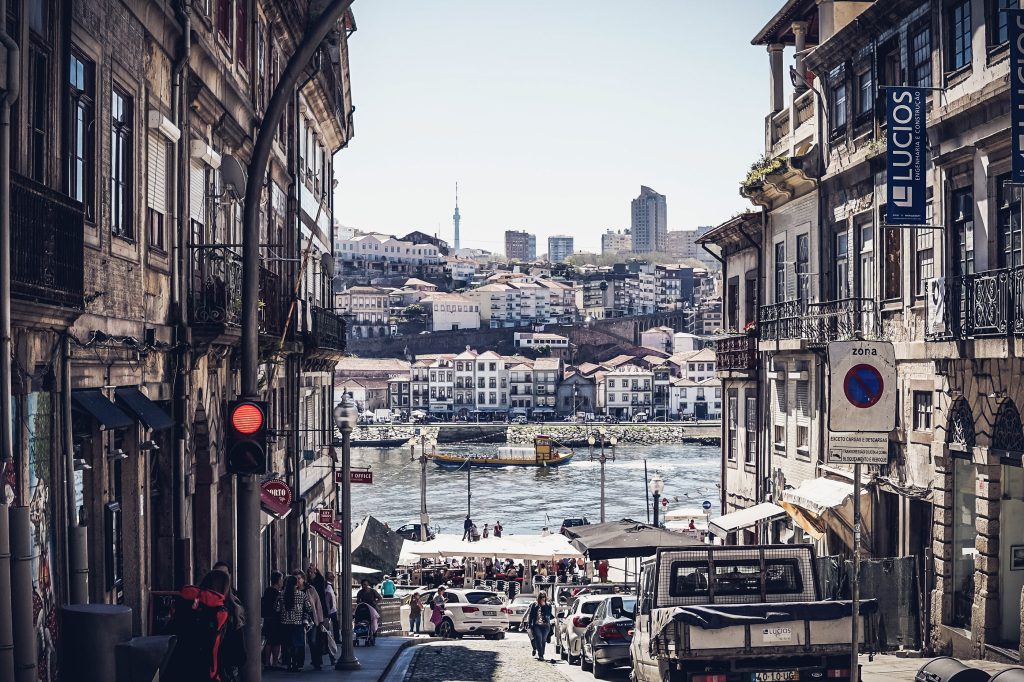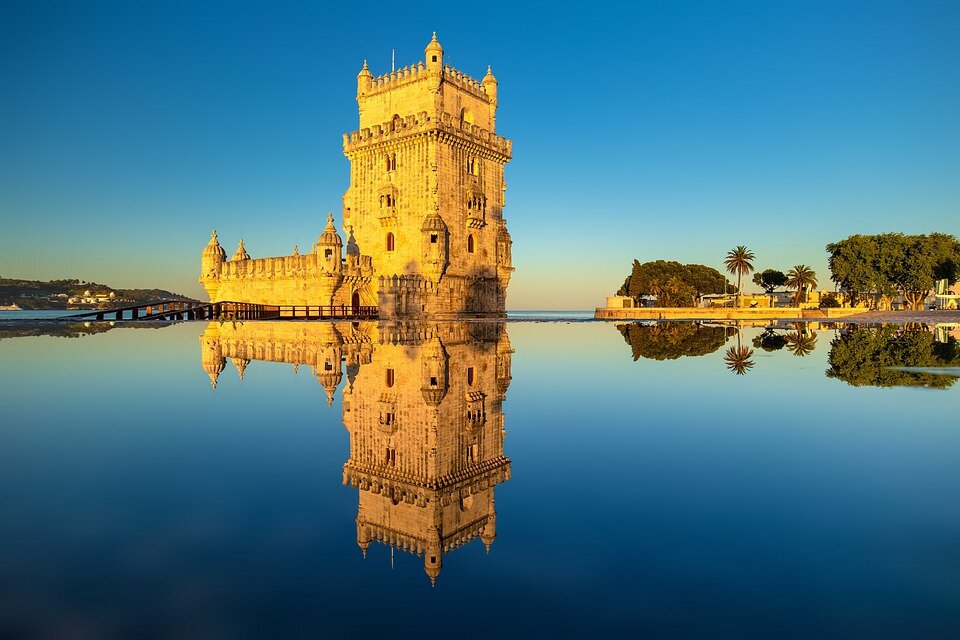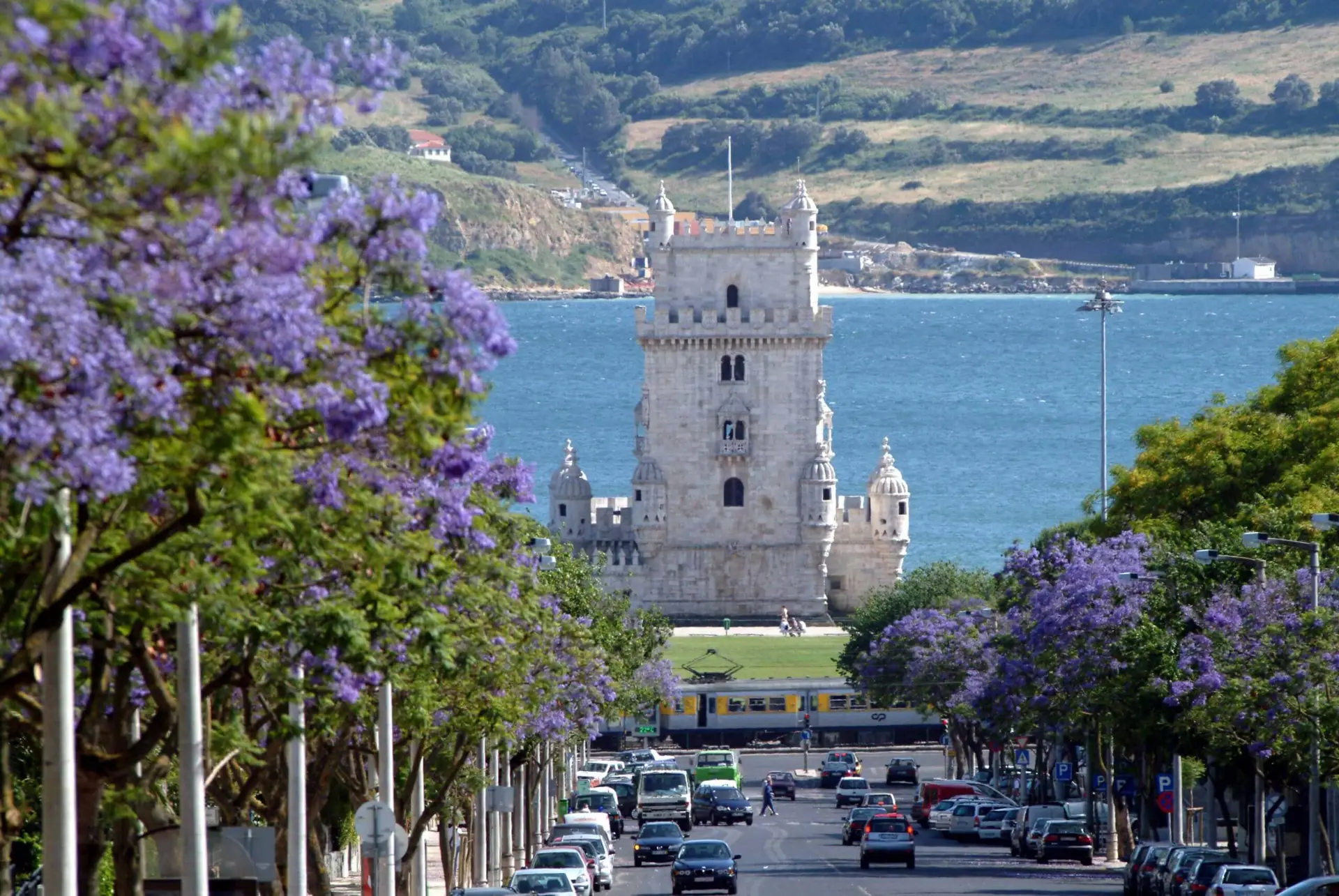Portugal continues to be one of the most attractive countries for immigration due to its mild climate, affordable prices and high quality of services. In recent years, the country has been actively attracting foreigners by offering residence permit programmes, comfortable working conditions and the opportunity to buy real estate on favourable terms. The best cities in Portugal to live in differ in terms of salaries, housing costs, infrastructure and income opportunities.
Lisbon: the capital of opportunity
Lisbon opens the list of Portugal’s best cities to live in, offering a developed economy, working prospects and a rich cultural environment. It is the country’s largest metropolis, which combines historical heritage and modern technology. The offices of major IT companies, international corporations and financial centres are located here, making the place a magnet for professionals from different fields. The average salary in the capital is 2000-2500 euros, but in the IT and finance industries the income can exceed 4000-5000 euros. The city remains a major economic centre, offering jobs in tourism, technology, start-ups and consulting.
Real estate: prices and rentals
The cost of housing is higher than in other regions. The price per square metre starts from 5000 euros in the centre and 3500 euros in the suburbs. Renting a one-room flat costs from 1000 euros in the main streets and 750 euros in more remote areas. Lisbon is suitable for entrepreneurs, IT professionals, investors and young professionals looking for career prospects and an active urban rhythm.
Porto: a city for those looking for a balance between work and comfort
 Porto ranks second among the best cities in Portugal due to its high quality of life, affordable prices and developed infrastructure. The city is known for its cultural heritage, wine industry and strong tourism sector. The average salary here is lower than in Lisbon, but the standard of living compensates for this disadvantage. The city remains a centre for freelancers, small business owners and professionals in tourism and commerce.
Porto ranks second among the best cities in Portugal due to its high quality of life, affordable prices and developed infrastructure. The city is known for its cultural heritage, wine industry and strong tourism sector. The average salary here is lower than in Lisbon, but the standard of living compensates for this disadvantage. The city remains a centre for freelancers, small business owners and professionals in tourism and commerce.
Property in Porto
The average cost per square metre is 2500-4000 euros, with flat rentals starting at 700 euros. This makes the city more affordable than Lisbon, but with a high level of comfort. Its proximity to the Atlantic Ocean, mild climate and relaxed pace make Porto an ideal place for families, freelancers and those who want to combine work and a comfortable life.

Coimbra: Centre for Education and Science
Coimbra is ranked among the best cities in Portugal to live in, offering a high level of education, affordable housing prices and an intelligent atmosphere. The metropolis remains a key educational centre of the country, as it is home to the oldest university, founded in 1290.

Why does Coimbra attract students and professionals?
The city combines an academic environment, a rich history and an affordable cost of living. The location remains ideal for students, teachers and researchers who value science, culture and low housing prices. The average cost of renting a flat is 500-600 euros per month, making Coimbra one of the most affordable cities in the country. At the same time, the standard of living remains high and the population is actively involved in cultural and educational activities.
Work opportunities
The fields of education, medicine, science and IT are well-developed here, making the metropolis attractive to teachers, doctors and technology professionals. Flexible remote work opportunities also make Coimbra attractive to freelancers and digital noms. The city remains the country’s intellectual centre for young professionals and scientists, making it an ideal choice for students, teachers and entrepreneurs working in the education and technology sectors.
Braga: Portugal’s best city for family life
Braga offers a high level of security, quality education and convenient infrastructure. It is one of the oldest corners of the country, which is actively developing. There are few tourists here, and life is quiet and measured. The infrastructure is adapted for families with children – many parks, playgrounds, green areas, sports facilities.
Real estate in Braga
The average cost of housing is lower than in major cities in Portugal. The price per square metre starts from 1800 euros, renting a flat from 600 euros per month. This is one of the most affordable places in the country to move to with a high quality of life. Braga is ideal for families, retirees and those who are looking for peace and comfort, but do not want to lose access to the developed infrastructure and opportunities of the metropolis.
Aveiro: the Venice of Portugal
Aveiro is a unique city on the Atlantic coast that combines rich history, modern infrastructure and a high standard of living. Thanks to its canals, architecture and convenient location, it is often referred to as the Venice of Portugal.
What makes Aveiro attractive for Cohabitation?
The city remains one of the most affordable in the country, offering a low cost of living and a comfortable environment. At the same time, the quality of infrastructure and security measures remain high. Aveiro stands out for its peaceful atmosphere, clean streets, convenient transport system and proximity to the ocean. The ideal place for those looking for a relaxed pace of life, but who want to stay in a dynamic city.
Property value
The average price per square metre starts from 2000 euros, renting a flat from 650 euros per month. This makes the city one of the most affordable in Portugal. Developed areas of tourism, shipping and innovative technologies create opportunities for work in the country, and the low level of housing and product prices makes life comfortable. Aveiro is ideal for those who want to live by the ocean, enjoy the architecture without losing affordability.
Conclusion
 Choosing the best city in Portugal to live in depends on your priorities. For career and work, Lisbon is the place to be. For family life – Braga, for students and academics – Coimbra, and for those looking for a balance of comfort and affordability, Porto and Aveiro are ideal. Immigration to the country offers prospects for work, business and comfortable living.
Choosing the best city in Portugal to live in depends on your priorities. For career and work, Lisbon is the place to be. For family life – Braga, for students and academics – Coimbra, and for those looking for a balance of comfort and affordability, Porto and Aveiro are ideal. Immigration to the country offers prospects for work, business and comfortable living.
 en
en  ru
ru  de
de  ar
ar  es
es  nl
nl  hi
hi  fr
fr  it
it  pt
pt  el
el 












